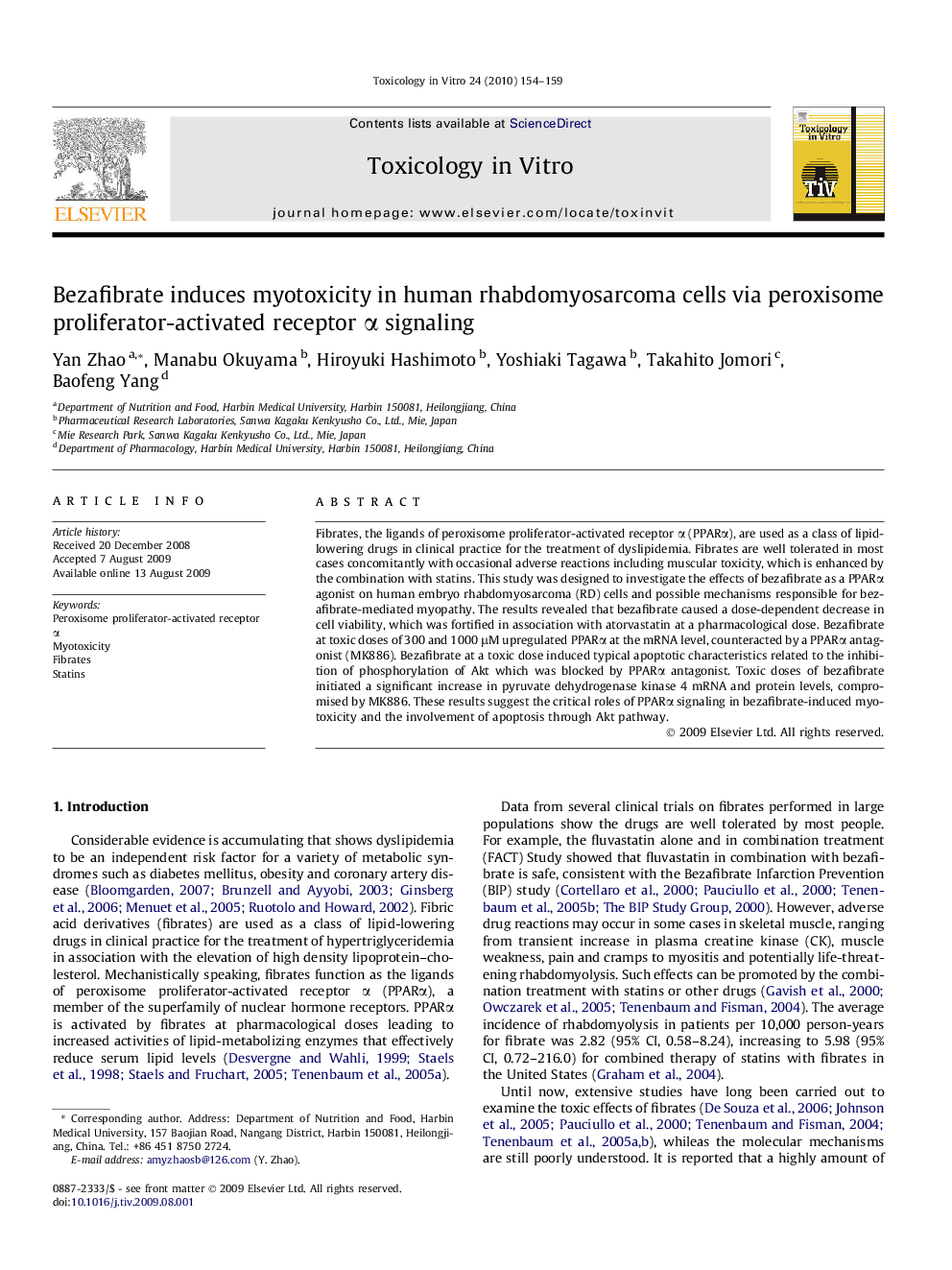| Article ID | Journal | Published Year | Pages | File Type |
|---|---|---|---|---|
| 2603540 | Toxicology in Vitro | 2010 | 6 Pages |
Fibrates, the ligands of peroxisome proliferator-activated receptor α (PPARα), are used as a class of lipid-lowering drugs in clinical practice for the treatment of dyslipidemia. Fibrates are well tolerated in most cases concomitantly with occasional adverse reactions including muscular toxicity, which is enhanced by the combination with statins. This study was designed to investigate the effects of bezafibrate as a PPARα agonist on human embryo rhabdomyosarcoma (RD) cells and possible mechanisms responsible for bezafibrate-mediated myopathy. The results revealed that bezafibrate caused a dose-dependent decrease in cell viability, which was fortified in association with atorvastatin at a pharmacological dose. Bezafibrate at toxic doses of 300 and 1000 μM upregulated PPARα at the mRNA level, counteracted by a PPARα antagonist (MK886). Bezafibrate at a toxic dose induced typical apoptotic characteristics related to the inhibition of phosphorylation of Akt which was blocked by PPARα antagonist. Toxic doses of bezafibrate initiated a significant increase in pyruvate dehydrogenase kinase 4 mRNA and protein levels, compromised by MK886. These results suggest the critical roles of PPARα signaling in bezafibrate-induced myotoxicity and the involvement of apoptosis through Akt pathway.
